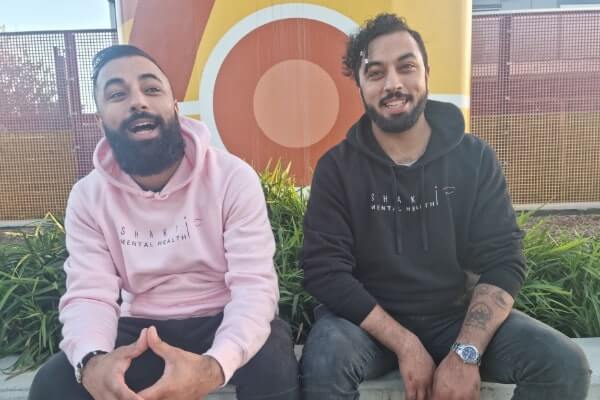With lockdowns, sickness, war, and floods, it’s been a trying few years for us all. A non-profit organisation in Melbourne, drawing its name from the Hindi word for strength, hopes to turn these struggles into something meaningful.
“We want to bring a positive connotation to talking about mental health,” explained Shakti Mental Health founder Jagesh Panchal. “When I started Shakti in 2018, I wanted to fill the gap in the conversations in our community about things like anxiety or depression and create positive spaces to bring it up.”
From Pakistani-Australian musician Emkew to Liverpool City Councillor Charishma Kaliyanda, plenty of young South Asian Australians have answered this call.
“By sharing people’s perspectives on our social media, we’re working towards breaking the stigma associated with mental health in our community. It’s a topic that largely goes unnoticed for several reasons like cultural norms and intergenerational trauma,” Jagesh told Indian Link.
The 28-year-old runs the organisation with his brother Devian. Due to the pandemic, much of their work in recent times has been largely online. Now that things are looking better, though, Shakti plans to host in-person events such as a panel on South Asian men’s mental health.
Jagesh elaborated, “In our community, men are somehow seen as ‘weak’ for opening up about their mental health. We inadvertently see this in our Instagram perspectives too, that are largely sent in by women. Hopefully panels like this will empower to men speak up about their struggles and experiences.”
READ ALSO: Bottled Up: creating conversations around men’s mental health
Of the 4.8 million Australians who live with a mental or behavioural condition, young people between 15 to 24 account for the highest proportion at 26 per cent. In a move to help these young Australians, an interesting project in the works is the Shakti Fund. It’s a crowdfunding endeavour to help pay for therapy. After all, Medicare isn’t always accessible to all residents in the country, including international students and temporary residents.
“We’re also working on building a directory of South Asian therapists and culturally informed therapists in Australia,” Jagesh added.
“We’ve found there’s a need for more therapists targeted towards the multicultural community and I think it goes back to university studies and training. The current model has somewhat of a Caucasian focus, but you shouldn’t need to be a person of colour to be able to help a person of colour.”
READ ALSO: How to recognise and respond to anxiety and depression in kids
Based in Melbourne, Jagesh still recalls the difficulty of seemingly endless weeks in lockdown in 2020 and parts of 2021, and notes how it was particularly difficult for some young South Asians.
“We definitely heard from some young women who felt controlled and stifled being back at home during lockdown or spending more time than before with their families,” he observed.
He adds that words like ‘depression’ and ‘anxiety’ can be hard to translate in many South Asian languages, making it difficult to even bring up these with some family members.
So what’s his advice? “If you’d like to start a discussion, I’d recommend asking a trusted third party like a family friend or trusted acquaintance to be present as a kind of mediator. This way, parents will likely be more receptive rather than cornering them.”
Addressing these concerns become crucial on a community level, Jagesh adds.
“Mental health is seen as an individual issue but really, it’s a community issue when it impacts those around you,” he stated. “Our main message is to encourage young South Asians to speak up. More conversations can mean more solutions.”









